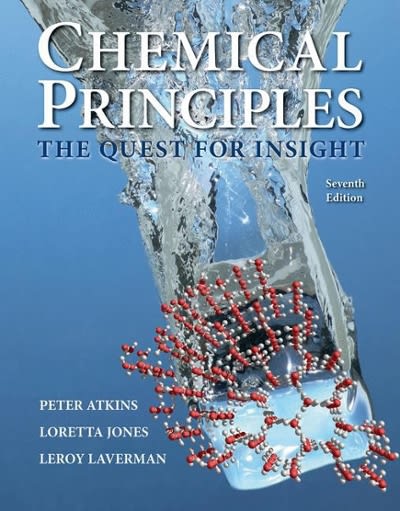An engineer studying piston engines wishes to know the difference between the maximum work a system can
Question:
An engineer studying piston engines wishes to know the difference between the maximum work a system can achieve and the work obtained when expanding against a constant opposing pressure. A piston confines 0.100 mol Ar (g) in 1.00 L at 25°C. Two experiments are performed.
(a) The gas is allowed to expand through an additional 1.00 L against a constant pressure of 1.00 atm.
(b) The gas is allowed to expand reversibly and isothermally to the same final volume. Which process does more work?
ANTICIPATE Provided the initial and final states are the same, a change carried out reversibly always does more work than a change carried out irreversibly, so you should expect the second path to produce more work and therefore correspond to a more negative value of w (because more energy is lost from the system).
PLAN For expansion against constant external pressure use Eq. 3 and for reversible, isothermal expansion use Eq. 4.![]()

What should you assume? Assume that the gas is ideal and that it is immersed in a water bath to maintain the constant temperature.
Step by Step Answer:

Chemical Principles The Quest For Insight
ISBN: 9781464183959
7th Edition
Authors: Peter Atkins, Loretta Jones, Leroy Laverman





